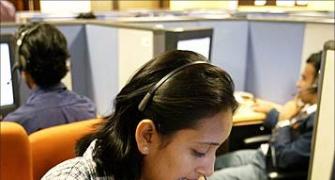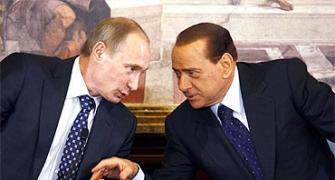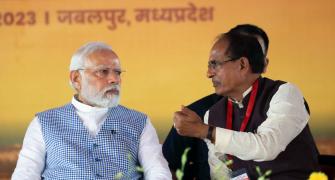 Top business leaders see a host of potential dangers facing the world economy - ranging from asset bubbles in emerging market countries to soaring world commodity prices and huge levels of state debt in Europe.
Top business leaders see a host of potential dangers facing the world economy - ranging from asset bubbles in emerging market countries to soaring world commodity prices and huge levels of state debt in Europe. However, it is difficult to say just where the next global shock will come from.
On the question of continuing low borrowing costs and cheap money in the most-developed economies, one of the factors that contributed to the global economic crash, participants said they were confident the lessons had been learnt and the global banking system had emerged stronger from the test.
Maurice Levy, chairman and chief executive officer, Publicis Groupe, the international advertising and communications company, said he is particularly concerned about surging asset prices in China and other leading emerging markets, being driven by the extremely fast growth of cities. "Where you have unremitting growth, you get crises," he warned.
In part, the leap in global commodity prices, which has already triggered fears of political unrest in some developing countries because of soaring food costs, is linked to increasing urbanisation, participants were told.
Although rises in commodity prices can have the advantage of encouraging greater technological innovation, not all commodities can be easily substituted.
Klaus Kleinfeld, chairman and chief executive officer, Alcoa, said with demand for cars in China, for example, certain to continue to expand, there will be no let-up in the global pressure on steel and copper prices.
But, business leaders were divided on how to approach the issue of huge state debt built up by some European countries during the boom years.
Some saw the need for Europe's stronger economies, particularly Germany, to take part of the load by supporting, for example, the launch of European Union-backed Eurobonds in support of weaker economies, such as Ireland and Greece.
Domenico Siniscalco, vice-president of Morgan Stanley International and country head for Italy, told Reuters that banks may shrink credit to meet tougher capital requirements, posing a serious threat to the real economy.
But Siniscalco also said he saw stronger confidence emerging in the real economy in Europe, with the risks still coming from the financial sector. "If you go to SMEs, if you go to big corporates, people are fighting strongly to react," Siniscalco said.
On the risk side, Siniscalco said banks may respond to sharply higher capital requirements in a difficult period by shrinking credit. "That's a serious risk, a serious threat to the real economy," he said.
He also said there was a concern that risk might be pushed to the unregulated side of the banking world. Siniscalco served as Italian economy minister in 2004-2005 under the previous government of centre-right prime minister Silvio Berlusconi before joining Morgan Stanley.
He is considered close to current Italian Economy Minister Giulio Tremonti, with whom he worked as director general of the Italian Treasury.









